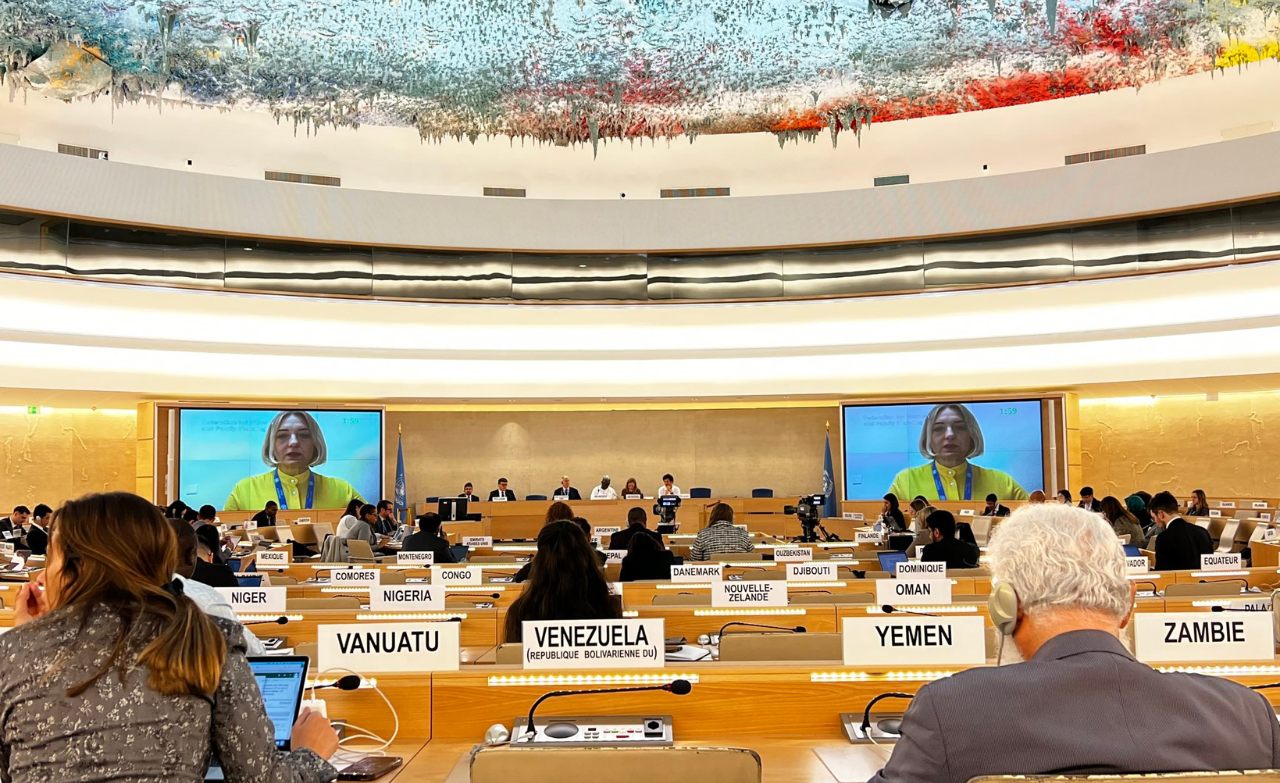Na marcowej sesji Rady Praw Człowieka ONZ FEDERA przedstawiła stanowisko dotyczące wyników czwartego przeglądu Polski w odniesieniu do praw reprodukcyjnych i seksualnych. Stanowisko wynika z raportu złożonego przez FEDERĘ i Sexual Rightts Initiative do Rady Praw Człowieka ONZ na temat stanu nieprzestrzegania praw reprodukcyjnych i seksualnych w Polsce na czwarty powszechny okresowy przegląd, który miał miejsce w listopadzie 2022 r.
Polska otrzymała rekomendacje z zakresu SRHR od 17 państw, co stanowi historyczną liczbę i tak nieadekwatną do problemów w tej dziedzinie. Niestety, żadna z rekomendacji nie dotyczyła wyraźnie dostępu do wszechstronnej edukacji seksualnej i antykoncepcji.
Stanowisko FEDERY dotyczyło dostępu do aborcji i dekryminalizacji aborcji, które są obecnie najważniejsze dla ochrony nas wszystkich w Polsce – kobiet i osób w ciąży, w tym nastolatek, uchodźczyń i migrantek z Ukrainy i innych państw oraz innych osób w szczególnie trudnych sytuacjach.
Mówimy też w nim o konieczności zapewnienia przez Polskę dostępu do edukacji seksualnej i antykoncepcji. Oraz wzywamy wspólnotę międzynarodową, żeby pociągnęła Polskę do odpowiedzialności za uporczywe łamanie naszych praw reprodukcyjnych i seksualnych.
Human Rights Council – 52nd Session
Outcome of the Universal Periodic Review of Poland
Federation for Women and Family Planning
Thank you President,
I make this statement on behalf of the Federation for Women and Family Planning from Poland.
We welcome the robust recommendations addressed to Poland on sexual and reproductive health and rights and women’s rights, and we regret that these did not explicitly include comprehensive sexuality education and access to contraception.
Access to safe abortion services, and the decriminalisation of abortion which is quasi banned in Poland, is imperative for the protection of life and health of all women in Poland, including adolescents, Ukrainian and other refugees, migrants, and persons in vulnerable situations. The current strict legislation that essentially bans abortion has led to deaths of women in Poland, and has put organisations who assist in providing information or access to services at risk of criminal charges. Statutory barriers and stigma around abortion place women’s and pregnant persons’ lives and health at risk, and undermine their rights to bodily autonomy and integrity, to be free from torture, to education, and to their right to self-determination.
The government of Poland needs to take urgent action to:
- reform the law to decriminalize abortion and legalize abortion on request, at least up until 12 weeks of pregnancy, and adopt the necessary accompanying guidelines to ensure women can access safe abortion services;
- review the delivery of sexuality education in schools, which should be obligatory and comprehensive;
- guarantee access to modern contraception, subsidized from the state budget and unlimited access to emergency contraception without a need to obtain the prescription.
We call on States and all international community to hold Poland accountable for delivering on sexual and reproductive rights.
